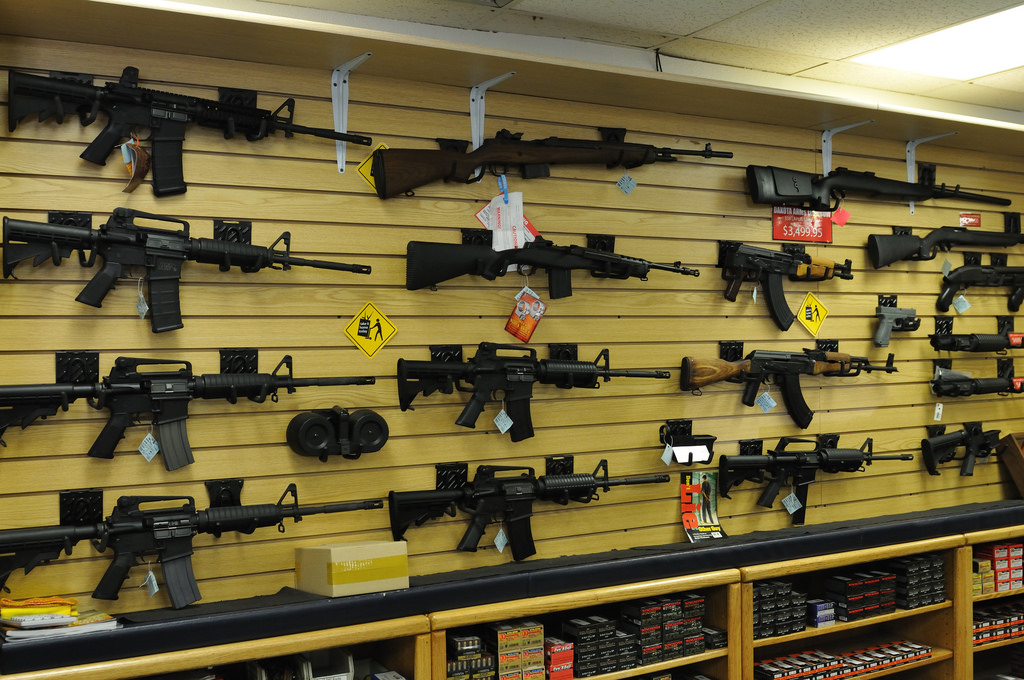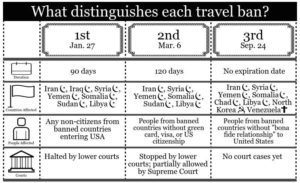On February 14, 2018, during the attack on Marjory Stoneman Douglas High School, 19-year old Nikolas Cruz used a legally purchased military-style assault weapon, the infamous semi-automatic AR-15 rifle, to kill 17 students. Cruz’s ability to purchase the gun so easily has led people to ask the question — exactly why are there so few barriers to owning guns in the United States?
According to federal law, when a person turns 18, they are legally allowed to purchase “long guns,” which are firearms with long barrels such as an AR- 15 or a M1903 rifle. Federal law also states that when a person turns 21, they are legally allowed to purchase a handgun from a licensed dealer. To obtain these weapons, buyers have to pass a background check through NICS (the National Instant Criminal Background Check System) that takes about 30 seconds and that includes a search of criminal records, domestic violence history, and immigration status. If the buyer passes this quick check, then they can purchase a rearm.
While Federal Law does prevent the ownership and sale of fully automatic weapons to civilians, it does not dictate certain limitations such as a mandatory waiting period and extended background checks. States have the power to reform gun control within their borders. For example, California, the state with the strictest gun control laws in the United States, has certain state laws such as mandatory, universal background checks, which require background checks at the point of purchase in all gun sales, including through private dealers. California has also banned the sale of assault weapons, such as semi-automatic AK-47s, and a new 2018 law requires all ammunition sales to be face to face. However, states with very little gun control, such as Idaho or Montana, do not require a universal background check and permit the purchase of assault-style weapons.
Although many people do purchase their rearms legally, people can also easily obtain rearms illegally. Lieutenant Derrick Lew, who oversees the SFPD Crime Gun Investigative Center said “people illegally obtain rearms by burglarizing homes, FFLs, vehicles, and straw purchases. An example of a straw purchase would be a person with a felony conviction asking a friend who can pass a background check to purchase the gun for them.” Furthermore, in the 45 states that have not yet passed any red flags laws, which allow the confiscation of guns by law enforcement, it is very easy for people to keep the illegal guns they obtain.
However, following the Florida shooting, gun control is improving. Florida passed a new bill on March 7,2018 that will raise the minimum age to purchase a gun to 21, create a waiting period, and ban bump stocks, which are attachments that can be added to semi-automatic weapons to significantly increase their rerate. Although it provides these necessary restrictions, it will also allow superintendents to arm school personnel.
Large corporations that sell guns have also made changes following the Parkland shooting. On February 28, the CEO of Dick’s Sporting Goods, Edward W. Stack, announced his decision to pull assault weapons from all stores. Furthermore, both Walmart and Dick’s have decided to raise the gun purchasing age in their stores to 21. e corporate shi in American gun policy demonstrates the first of many ways America is improving their gun control policies outside of government mandated action.







